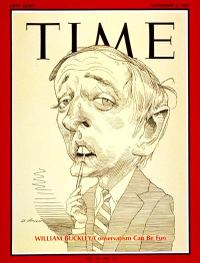
In a recent post I decided to ask, "Who was Kos in 1967?"
It was a flip question, with no simple answer. Because Markos Moulitsas Zuniga is a unique individual, a unique man created for a unique time.
What you need to understand about Kos is that he is not really a politician, or even an activist. He’s an entrepreneur. He built his web site, Dailykos.com, as the first of what he hoped would be several communities, scaled and active, built around different subjects. He has a hankering for sports. There are, in fact, three other Kos sites — Mother Talkers, Sports Blogs, and Street Prophets.
Markos also has a unique life story to tell. Born in Chicago, but raised in El Salvador, returning here during that country’s civil war. An Army veteran who served in Germany during the Gulf War. A graduate of Northern Illinois University (Go Huskies). Also, by the way, a lawyer, Boston University. (Go Terriers.) Not the kind of places you expect to find the political elite.
Yet, in the context of his time, in the context of this time, that’s just what he has become, not only a member of the political elite but the de-facto leader of the Netroots, the rising tide of our time, the political equivalent of Republicans in the 1850s, of Populists in the 1890s, of liberals in the 1930s and of movement conservatives in the 1960s.
That last bit was a big hint. So who was Kos in 1967?
William F. Buckley Jr. was, in 1967, just 6 years older than Kos is now. Like Kos he had an interesting early life. While Kos grew up in El Salvador, Buckley actually attended college in Mexico. While Kos was the victim of a CIA-sponsored war in Central America, Buckley was actually recruited into the CIA.
But the real comparison lies in what came later. Where DailyKos is the key political medium of our time National Review, which Buckley co-founded in 1955 ,was the key political medium of his. Just as DailyKos, through its community, defines what Netroots liberalism believes and how it acts, so Buckley did the same thing for movement conservatives in the 1960s, not only through the Review but through organizations he helped found and supported.
There is a key difference. Buckley was proud to define American conservatism, and wanted nothing more from life but to be a raconteur and writer. It was left to his brother, James, to engage in active politics. But the difference is also a similarity. Kos’s entrepreneurial leanings, which are at base apolitical in nature, are a good match with Buckley’s life of scholarship.
One more interesting similarity. Today, in 2007, both Markos Moulitsas Zuniga and William F. Buckley Jr. are proud to call themselves opponents of the War in Iraq.











The 1967 Game: Who Was Kos Then?
Actually, Kos is CIA too.
Actually, Kos is CIA too.